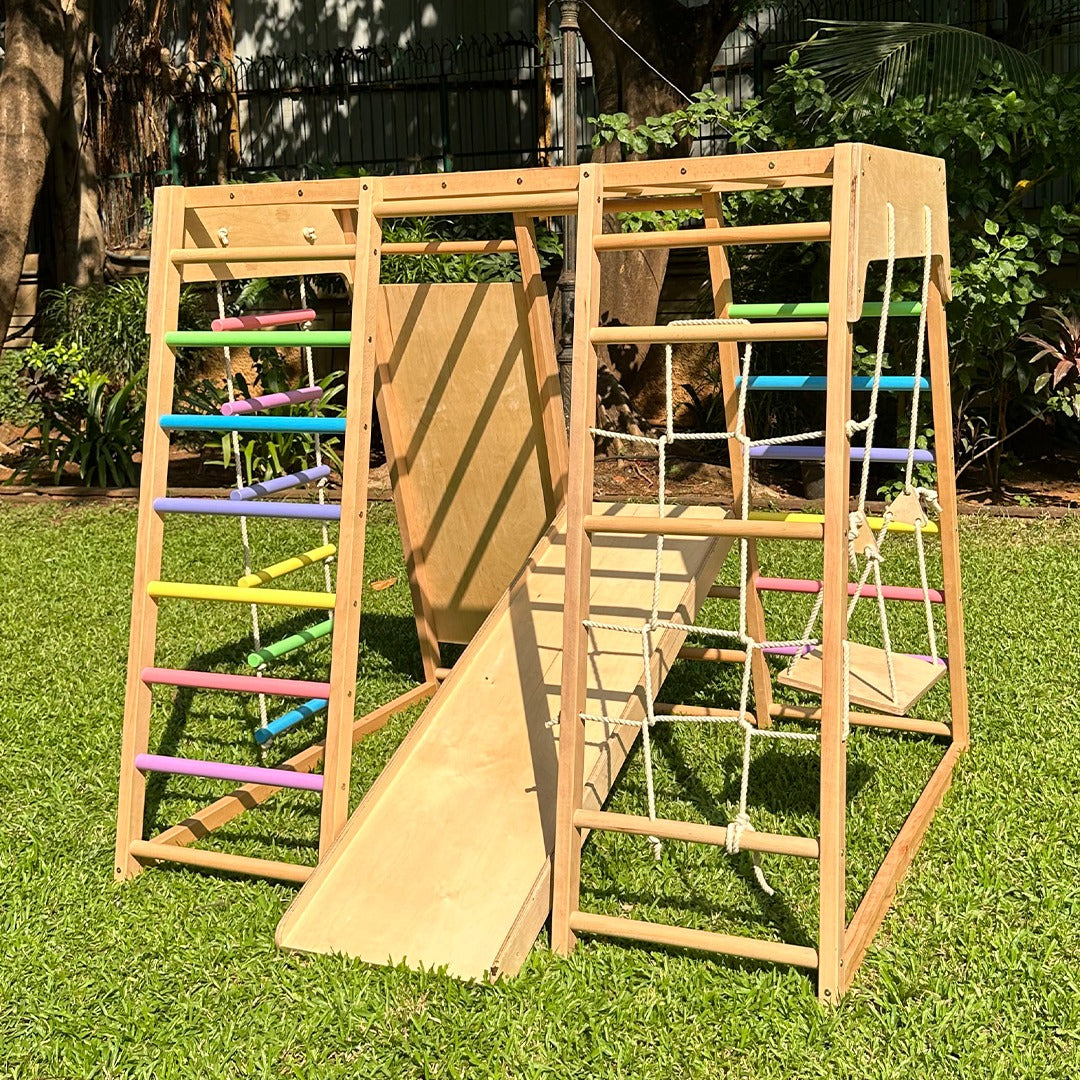The aroma of fresh chai brewing, the lively chatter of a joint family gathering, the rhythmic chants during a festival – these are the threads that weave the rich tapestry of our Indian childhoods. We grew up steeped in a culture that valued respect, community, and tradition above all else. But today, as parents, we stand at a fascinating crossroads. We want our children to cherish their roots, understand the importance of 'sanskaar', and connect with their heritage, yet we also want them to be globally aware, independent thinkers, resilient problem-solvers, and emotionally intelligent individuals ready for a world that's changing at lightning speed.
This isn't just a balancing act; it's an art. How do we instill values like respect for elders without stifling a child's voice? How do we celebrate community bonds while fostering individual identity and critical thought? It's a question many Indian parents, from bustling metros to serene towns, ponder daily. The key lies not in choosing one over the other, but in a mindful, harmonious blend.
The Enduring Power of Our Heritage
Our traditions offer an incredible foundation. Concepts like 'Vasudhaiva Kutumbakam' (the world is one family) naturally cultivate empathy and global citizenship. The stories of Ramayana and Mahabharata, passed down through generations, aren't just myths; they are ethical compasses, teaching resilience, dharma, and the consequences of actions. Daily rituals, whether it's touching elders' feet or offering prayers, inherently teach humility and gratitude.
These values are priceless. They provide a sense of belonging, a moral framework, and a connection to something larger than oneself. When children understand their cultural narrative, they develop a strong sense of identity, which is crucial for self-esteem and navigating life's complexities.
Embracing the Best of Modern Thinking
However, the modern world demands more than just tradition. Our children need to be critical thinkers, not just followers. They need to understand and articulate their feelings, advocate for themselves, and adapt to diverse environments. The globalized landscape requires an open mind, an ability to question, innovate, and collaborate.
Modern parenting research emphasizes positive discipline over punishment, fostering intrinsic motivation, encouraging curiosity, and nurturing emotional intelligence. It focuses on empowering children to make choices, understand consequences, and develop a strong sense of agency. These approaches prepare them not just for a job, but for a fulfilling life.
Crafting a Beautiful Blend: Practical Steps
Tradition as a Springboard for Modern Lessons
Instead of merely observing a festival, discuss its significance. During Diwali, talk about light over darkness, good over evil, and the importance of sharing, not just bursting crackers. When you visit a temple or gurudwara, explain the principles of selfless service and community. These conversations turn rituals into meaningful lessons that resonate even with a modern mindset, connecting abstract values to real-world applications.
Respectful Dialogue, Not Blind Obedience
Our culture emphasizes respecting elders, and rightly so. But respect doesn't mean silencing a child's legitimate questions or feelings. Teach them to express their opinions respectfully, even if they differ from an elder's. Encourage them to ask 'why' and engage in healthy debates at home. This fosters critical thinking and communication skills while still valuing decorum and consideration for others' perspectives.
Family Bonds and Individual Space
In many Indian homes, particularly joint families, togetherness is paramount. While this provides an incredible support system, ensure your child also has their own space, both physical and emotional, to explore their interests and develop their unique personality. Designate a quiet corner for reading, encourage independent play, and respect their need for alone time. It's about being connected, not enmeshed.
Narratives of Resilience and Innovation
Share stories of Indian heroes, not just from mythology, but also modern-day achievers – scientists, entrepreneurs, artists, and social workers. Talk about their struggles, their innovative spirit, and their perseverance. This teaches children that our heritage is also about courage, problem-solving, and contributing positively to society, inspiring them to forge their own paths.
Digital Dharma and Global Citizenship
Teach responsible use of technology, just as you'd teach any other life skill. Explain digital etiquette, online safety, and how to use the internet as a tool for learning and connection. Encourage your children to explore global cultures through books, documentaries, and online resources, showing them how their Indian identity fits into a larger, diverse world. It's about leveraging technology to broaden horizons, not just for entertainment.
Connecting Through Play and Storytelling
The simplest way to blend is often through play. Re-enact stories from the Panchatantra, sing traditional folk songs, or engage in traditional games. Use these moments to discuss morals, social interactions, and cultural nuances. Play-based learning, which research consistently champions, allows children to absorb values naturally, making learning enjoyable and deeply impactful.
Ultimately, modern Indian parenting is about creating a bridge, not a wall. It's about showing our children that their heritage is not a rigid set of rules, but a vibrant wellspring of wisdom that can enrich their modern lives. It's about empowering them with both roots and wings – the deep roots of their culture and the strong wings of independence and critical thought to soar in the world.
Nurturing this blend requires a playful spirit, and that's where thoughtful resources make a difference. To support your child's holistic development, encouraging both traditional values and modern skills through engaging activities, explore the safe and educational play-based learning toys at SkilloToys.com.



